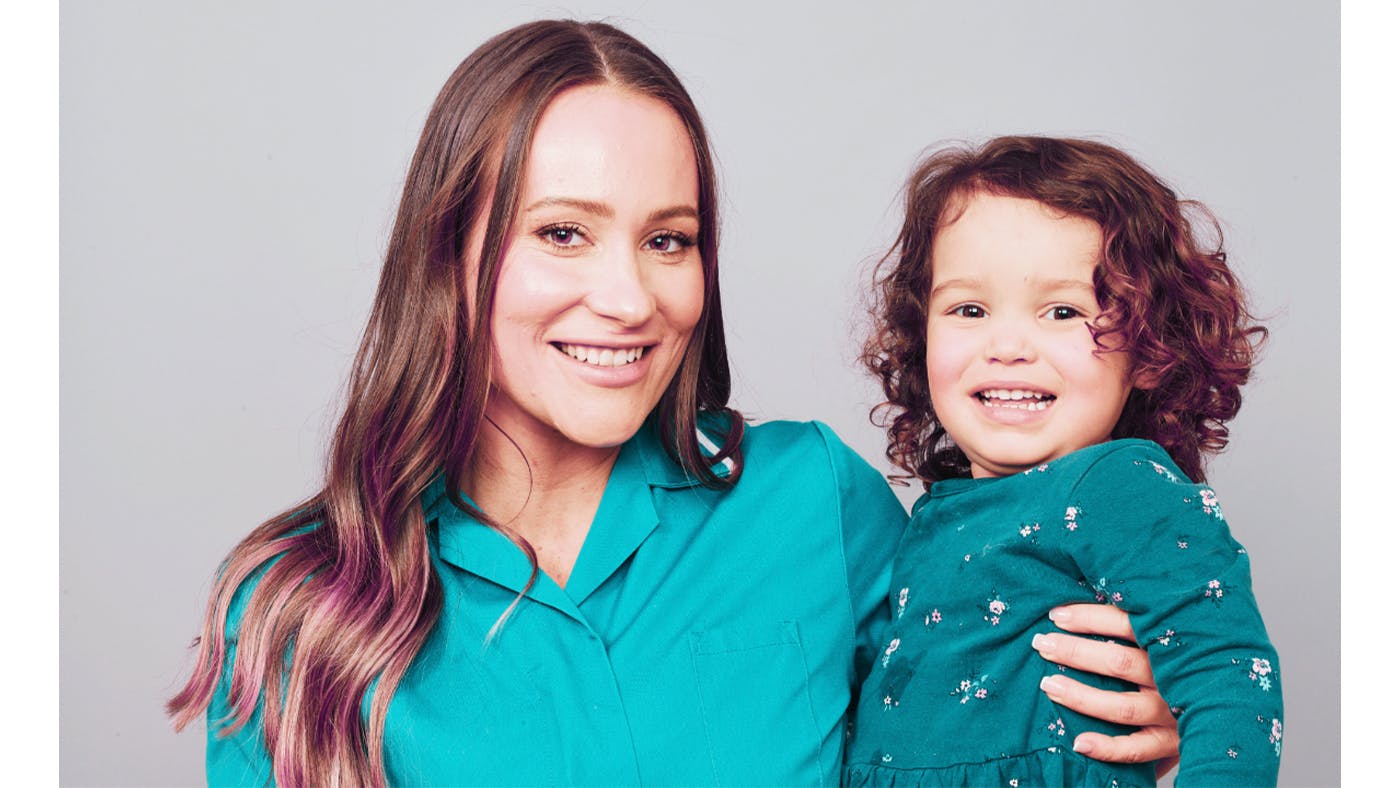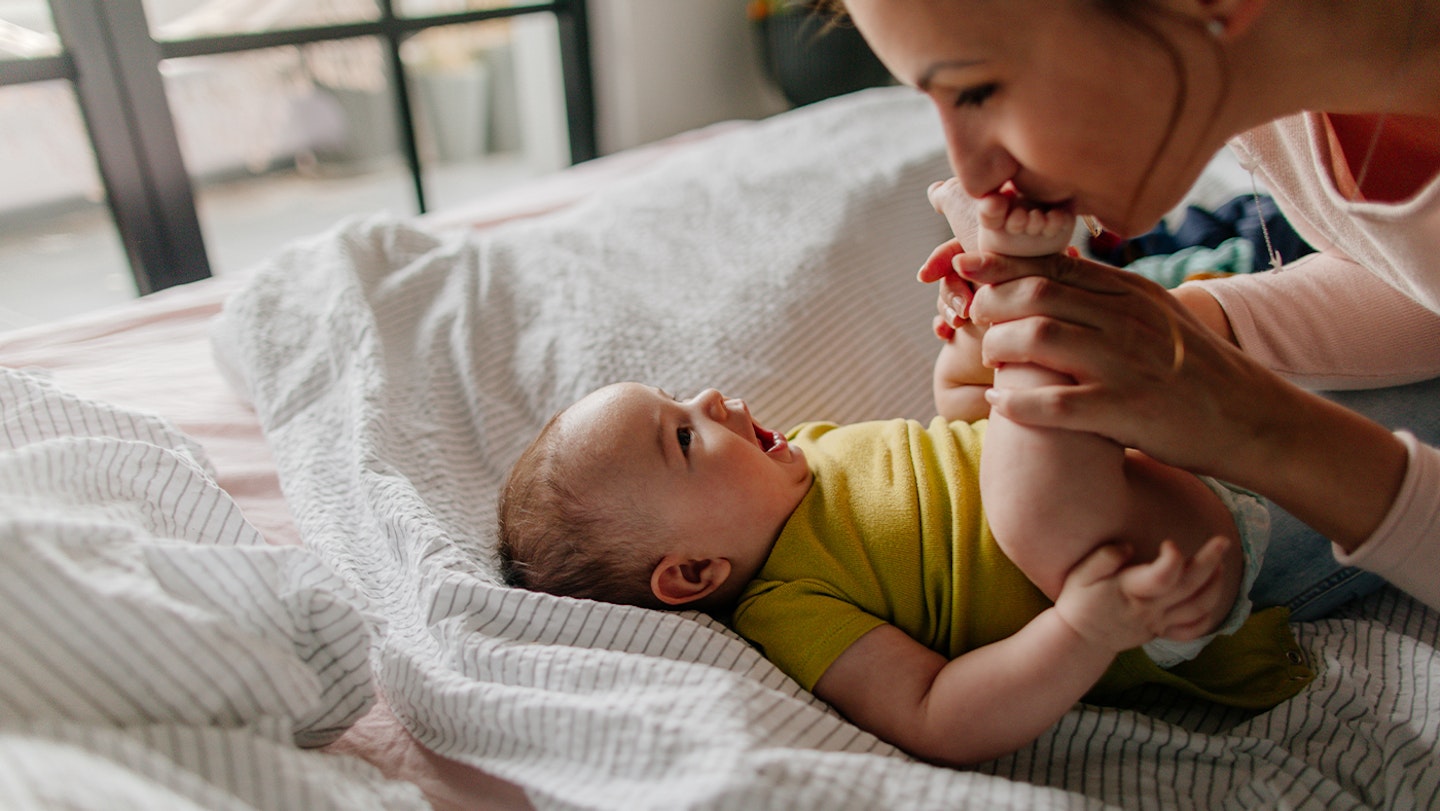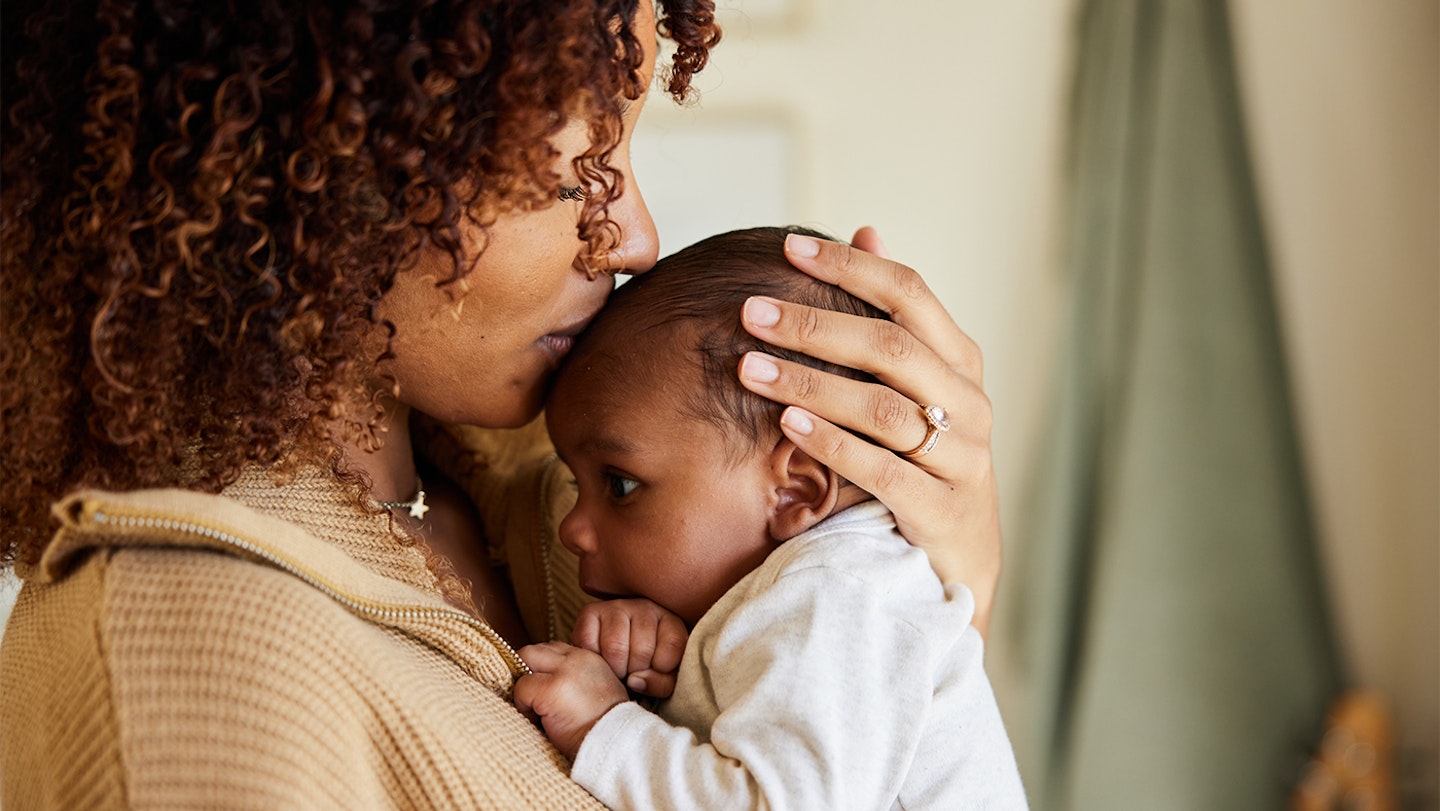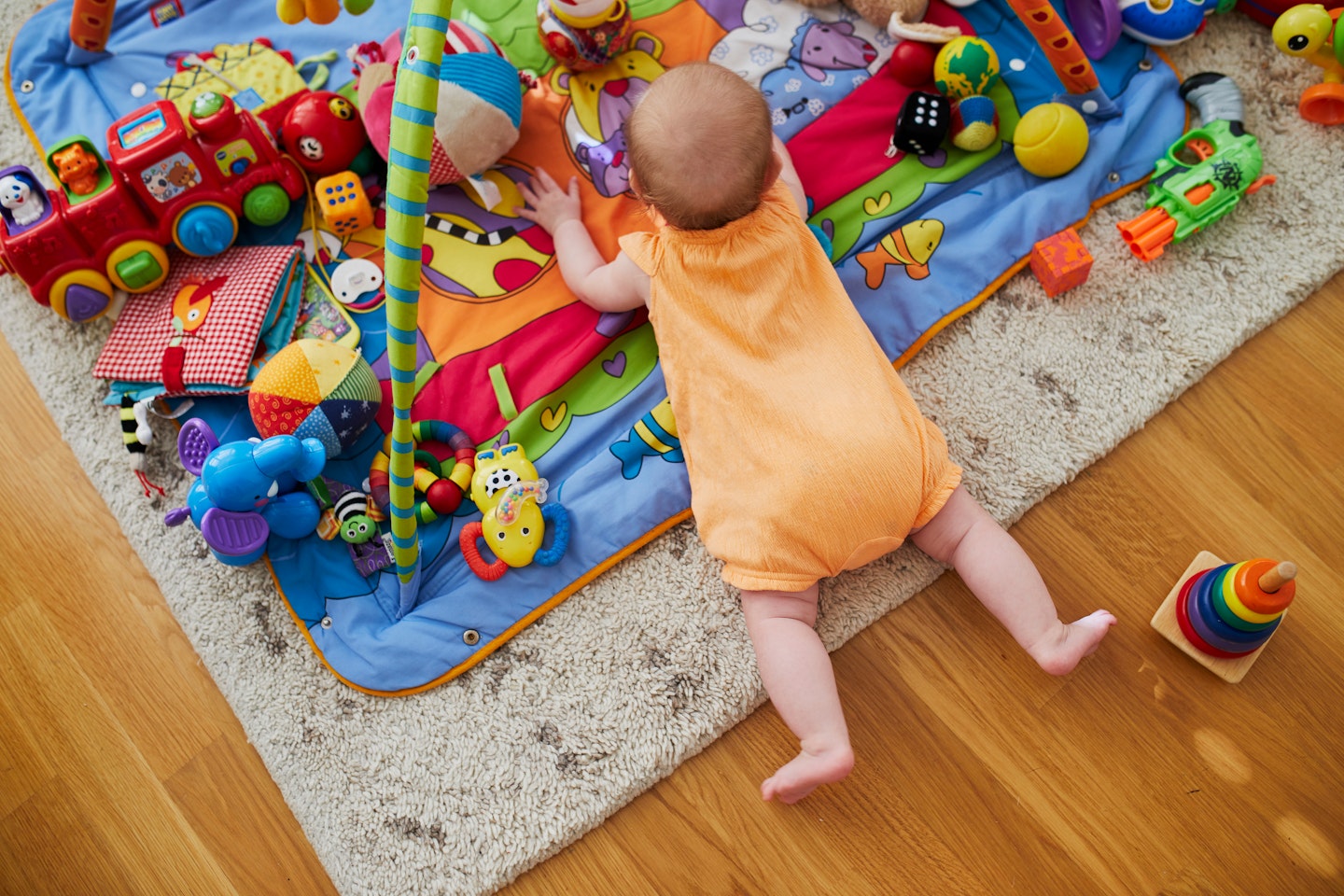
Medically Reviewed by: Midwife Marie Louise
If you've got a 10 week old baby it may feel as though the last 10 weeks have both flown by and also felt like the longest weeks of your life. Your little one will have done a lot of growing in that time, and it's likely you've noticed some changes in yourself as well. With the help of our expert, The Modern Midwife, Marie Louise, we've taken a look at your baby's development milestones, what to expect in terms of their feeding, sleeping and pooing, and everything you need to know at this stage of your baby's life, including their first growth spurts and possibly a first smile!
10 week old baby development

Physical development
• Growth: By the 10-week mark, your baby is likely to have gone through a few growth spurts, growing two inches and putting on 2-3 pounds since being born.
"Babies grow rapidly during this period, gaining weight and length. Regular well-baby check-ups with a paediatrician can ensure that the baby is meeting appropriate growth milestones" says Midwife Marie.
As they’re starting to outgrow their clothes and their Moses basket, it’s time to move up a size.
Top tip: Try keeping the Moses basket inside the cot for a few nights to get your baby used to their new surroundings.
• Muscle control: Your 10 week old baby is finally realising that they can look at and touch things at the same time. That means a lot of grabbing is coming your way - you may want to remove your jewellery for a while and be careful with hot drinks.
• Head control: As your baby enters month three, they should be able to hold their head up more confidently this week than they could in week 9, although not for too long. According to Midwife Marie, the 10-week mark is all about that head control. "10-week-old babies are developing better head control, and some may start to show early signs of rolling over," she explains.
Keep reading to find out more about tummy time and how to develop their neck strength which will help them hold their head up.
Cognitive development
• Listening skills: "At 10 weeks, babies start to show increased awareness of their surroundings, responding to familiar voices and faces. They may also begin to track objects with their eyes," says Midwife Marie.
• Interaction: As your baby realises they can use their legs and arms to kick and punch, they’ll start to be more co-ordinated and grab at everything. This is a great time to introduce toys to help hand-eye coordination more at playtime.
Playtime is also something your baby is starting to engage with more; they will love bright colours and new sounds. Allow things to dangle on their pram or in their cot to help develop their 3D vision and encourage them to grab at them.
They’re also loving music right now and will have notably different reactions depending on what type of song you play. Keep singing to them and playing gentle lullabies followed by faster songs - you may even encourage more smiling!
• Smile! Babies usual grace you with a first smile around the end of the second month, so with any luck you may see a grin this week or around week 11. Keep looking at them, smiling and interacting to encourage that precious first smile.
10-week-old baby health and care
Vaccinations
You should have had your immunisation appointment at two months/8 weeks old, but don't worry if you’re only just fitting it in or they had to be postponed.
2 month vaccination appointment:
• First dose of the 6-in-1 injection against diphtheria, hepatitis B, tetanus, whooping cough, polio and Hib (Haemophilus influenza type B)
• Rotavirus (a common cause of diarrhoea and sickness)
• Meningococcal Group B (protects against things like meningitis and septicaemia)
The meningitis B vaccine can result in a fever, so your nurse may advise you to give your baby infant paracetamol afterwards.
They will receive these vaccinations by injection in their upper thigh, one in each leg. It might sound traumatic, but should only take a few seconds. The rotavirus vaccine will be given orally (a liquid dropped into their mouth for them to swallow).

Sleep
Midwife Marie says a 10 week old baby needs about 14-17 hours of sleep spread across around ten hours at night and five during the day (across around three naps). A lot of new parents will worry that their baby isn’t fitting into a certain sleep schedule, but remember, every baby is different and they’re still likely to wake up in the night for feeds at this age. "Babies at this stage tend to sleep for shorter periods during the day and longer stretches at night, with several naps during the day," says Marie. If you’re struggling to establish a baby sleeping routine, try not to worry – every baby will take their own time to settle into a routine.
Feeding
Growth spurts mean one thing, a lot more food. If you’re following your baby’s lead you may find them eating more, but don’t worry about overeating as they know how much they need – 5-6 feeds over 24 hours is average at this age, but every baby is different so there isn't a strict 10 week old baby feeding schedule to follow.
Midwife Marie explains: "On average, babies at this age may feed every 2-3 hours, with each feeding lasting about 15-30 minutes."
A good guideline for feeding is 150-200ml per kilo of their weight, but continue to follow their lead if you’re breastfeeding – your baby will know best!
Poo
When it comes to baby's poo, your 10 week old baby is probably filling fewer nappies than they did in the early weeks. It’s not necessarily how many times they poo that matters, but more so if it’s passed easily and your baby is not in pain. Baby's poo colour can often tell you more about what's happening inside than the number of times they go.
"Babies typically need changing every 2-3 hours, or more frequently if they have soiled their nappy" explains Marie. "Maintaining good hygiene is crucial for preventing diaper rash."
If you feel like your baby doesn’t seem to be pooing enough, or you’re worried they look uncomfortable while going, your little one might be constipated and need to see a doctor.
What problems should parents of a 10 week old baby be aware of?
While Midwife Marie says that parents should be aware of any signs of illness in a 10 week old baby; fussy, fever, or feeding difficulties. "Keeping up with vaccinations is also essential." she adds.
Flat Head Syndrome: If your baby is spending a lot of time on their back, they may be at risk of developing Flat Head Syndrome. The continued pressure on one spot of their head will cause a flat spot to appear. Scroll down for some tummy time tips which can help avoid this. You can also wear your baby in a sling to reduce the amount of time they spend on their back, and increase bonding for the two of you.
First colds: It's likely that your 10 week old baby may get their first cough or cold soon. Unfortunately it's likely to be the first of many - keep them hydrated by feeding and if they're struggling to feed, try unblocking baby's nose. If they have a fever, wheezing, vomiting or fast breathing, it can be sign of something more serious, so call your doctor or NHS 111.
Teething: A 10 week old baby drooling can a sign of teething. They can start teething from around now so if your 10 week old baby is fussy or drooling, check their gums for signs of redness. You can give Calpol to babies over 2 months old to help with the pain if needed.
Looking Out for You
For the past two weeks you've been looking after every need of a (probably quite demanding) new life. But remember, you also need to look after yourself. If your baby is exclusively breastfed it might be tricky to get some time for self care, but just an hour off can make a huge difference to your wellbeing, as can trying to spend quality time with your partner. As Midwife Marie tells us, "Parents should prioritise self-care, seek support when needed, and communicate openly about their feelings. Re-establishing a routine can provide a sense of normality for both parents and the baby".
Post-pregnancy sex: While you are obviously obsessed with your new baby, both you and your partner may be starting to miss the intimacy you used to have. There are many ways to reconnect with your partner which can also help if you're getting back into sex after birth.
Postnatal Depression: Postnatal Depression can occur at any time in the first year of your baby’s life. With one in ten women dealing with postnatal depression, you’re definitely not alone if you're experiencing feelings of guilt, anxiety, negativity or struggling to bond with your baby. It's important to seek help from your doctor so you can access the support you need.

Things to think about at 10 weeks
Try some tummy time with baby
With your baby more engaged at playtime, it’s a good time to focus on tummy time as Midwife Marie explains. "Incorporating tummy time into daily routines helps strengthen the baby's neck and upper body muscles." You might be wondering how to play with a 10 week old baby and tummy time is a great excuse to get down on the floor and interact with them. Not only will this encourage them to use their arms to push up and use their necks to look around, it will help your baby develop the muscles they need to start crawling. Start with a few minutes and work your way up to 15-30 minutes a day over the next few months, but always stop when they show signs of tiredness.
Testing your baby's muscles
This week, you may find your baby is bearing some weight on their legs. Try it by holding them upright and seeing if they can support themselves for a moment. It’s a big ask, and one you should probably only try when they’re happy and excitable, but testing out these reflexes and muscles is a great way to start helping their gross motor skills.
About the expert
Marie Louise, AKA the Modern Midwife is a qualified midwife of twelve years, a mother of two, and an author. Marie also works in partnership with leading baby product manufacturer, MAM. She is dedicated to supporting parents in navigating their parenthood journey with her range of online courses and books, whilst breaking down scientific data into a digestible form for everyone to understand.
Lorna White is the Products Editor for Mother&Baby. After running the Yours magazine website, specialising in content about caring for kids and grandchildren, Lorna brought her expertise to Mother&Baby in 2020. She has a keen interest in a range of topics from potty training and nutrition to baby names and early development and has a wide range of experienced medical experts and professionals at her fingertips. In her spare time, she enjoys spending time with her two young sisters, dog walking and enjoying the outdoors with her family.
